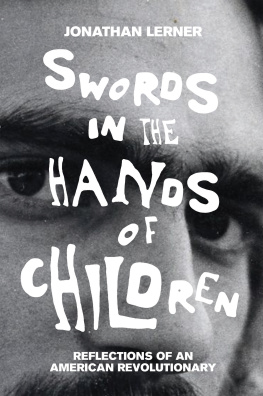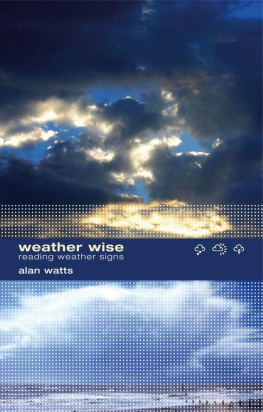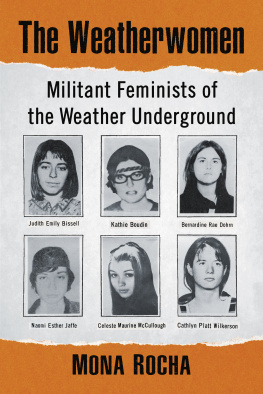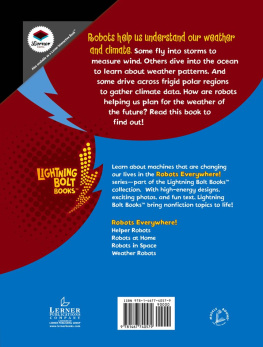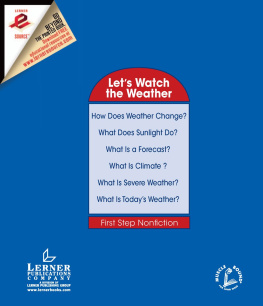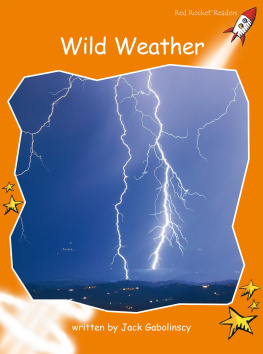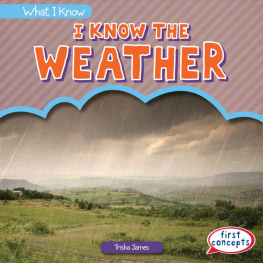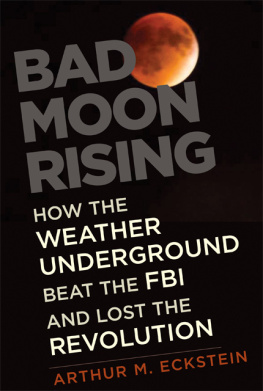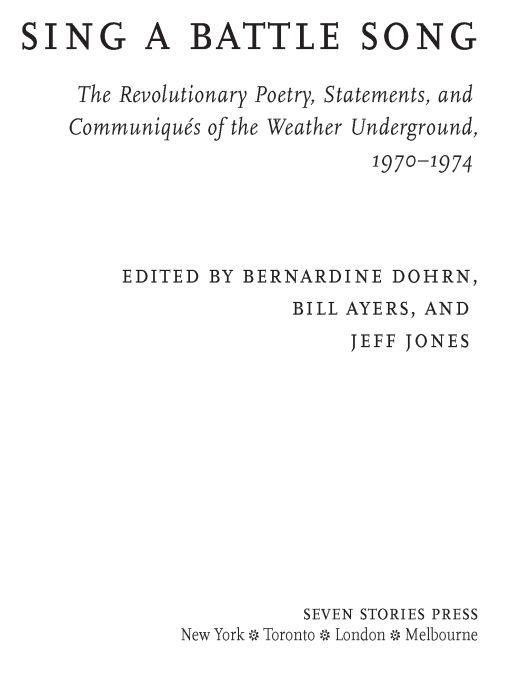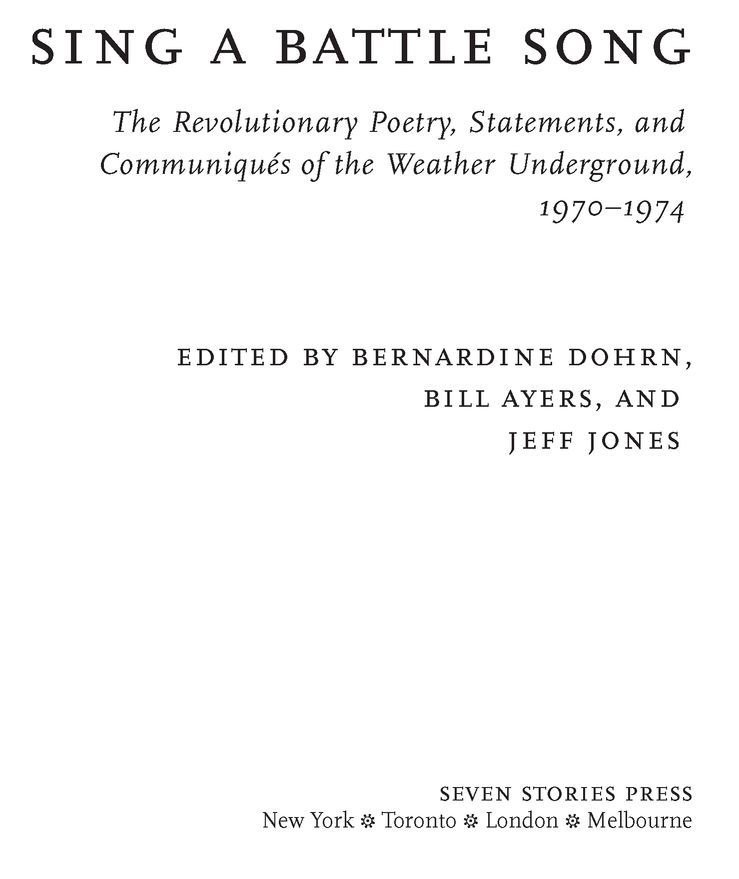Table of Contents
EDITORS PREFACE
THIS VOLUME CONTAINS SELECTIONS from the writings of the Weather Underground Organization (WUO), a homegrown radical anti-imperialist collective that was formed in the beginning of 1970 and dissolved six years later. Weather, which emerged out of the mass student organization Students for a Democratic Society, had as its program militant opposition to the war in Vietnam, and support by all means for the liberation of African-Americans.
This collection is not intended to be comprehensive: it includes only a very brief excerpt, for example, of the founding document of the Students for a Democratic Society (SDS) faction that went on to become the WUOYou Dont Need a Weatherman to Know Which Way the Wind Blows, a position paper written in the spring of 1969 in the final ideological paroxysm of SDS. This collection includes most of the statements and publications issued by the organization. It is intended to provide the basic historical documents for students of the period, and for todays activists wondering what those crazy kids were up to in the sixties.
Each of us has included our reflections on that period, and on these writings, and we share the common sense that they are of historical value, and although we each cringe at the overheated rhetoric and the bombast (Bernardines word), we all rejoice at the militant resistance to war, racism, and imperialism. We also include a new piece by Jonah Raskin, who edited and published Weather Eye, a collection of WUO communiqus in 1974; the original introduction he wrote to that collection is also included here.
Some recent and excellent sources have added to the scholarly and popular literature and art about this period, and we urge you to explore the context of the writings included in this volume with, among other things, the documentaries The Weather Underground, by Sam Green and Bill Siegel, and Rebels with a Cause, by Helen Garvey and Bob Pardun; Fugitive Days, by Bill Ayers, A Radical Line, by Thai Jones, Outlaws of America: The Weather Underground and the Politics of Solidarity, by Dan Berger, Bringing the War Home: The Weather Underground, the Red Army Faction, and Revolutionary Violence of the Sixties and Seventies, by Jeremy Varon, The Way the Wind Blows, by Ron Jacobs, and The Sixties Papers, edited by Stew Albert and Judy Gumbo.
ACKNOWLEDGMENTS
MANY PEOPLE MADE EXCEPTIONAL sacrifices to create and sustain the Weather Underground. In the years 1969 through 1976, we were one of many radical groups trying to find the right mix of militancy, strategy, and ideology that could produce revolutionary structural change. That the movements of the sixties and seventies largely failed in that ambitious effort does not mean it was wrong to try. Indeed, it is our observation that virtually everyone we know from those days is still active in todays progressive movements and that this combined experience has helped keep alive the ideas of liberation that motivated hundreds of thousands of young Americans to break with the dominant culture and to look to the margins for leadership and inspiration.
Friends, family, and editors contributed to gathering this collection and refining our pieces.
Greg Ruggiero, our editor at Seven Stories Press, had a vision and helped us realize it. It was his idea to publish a volume of the primary documents of the Weather Underground. Greg believed that, as demonstrated by recent books, films, documentaries, and our experiences speaking on campuses and elsewhere about the organizations history, it was time to republish in one collection these primary documents from the Underground and to share them with new generations of activists. Zayd Dohrn, Rachel DeWoskin, Thai Jones, Eleanor Stein, and Harriet Beinfield read, contributed, commented, researched, and supported this effort from the beginning.We also thank the Labadie Collection, University of Michigan, and its curator Julie Herrada, for providing documents from the collection. We are also grateful to historian activists Dan Berger, Andy Cornell, and Ron Jacobs, for their help in completing this collection.
Prairie Fire: The Politics of Revolutionary Anti-imperialism, which is included in this collection, was written and released in 1974. It begins with a list of political prisoners and prisoners of conscience and it is unconscionable that many of those named then remain jailed today. These are committed activists of the sixties, seventies, and eighties who are aging in prison for actions taken in pursuit of peace and an end to racism. And yet so many war criminalsguilty in Vietnam and guilty in Afghanistan, Guantnamo, and Iraqtoday enjoy their freedom at the highest levels of U.S. government.
The editors undertook this project, in part, because we were three publicly identified leaders of the organization during its fugitive days. We were not, in fact, the only leaders of the Weather Underground. No one person or group of individuals owns this history or these historical documents. They belong to everyone who helped create them. Therefore all proceeds from the sale of this book will go to support the work of the Rosenberg Fund for Children (RFC). Since 1990, the RFC has provided support for the children of targeted progressive activists and targeted activist youth. We encourage you to learn more about and contribute to this project at www.rfc.org.
We have each found ways to carry forward the values of the historical period reflected in this volume into the new millennium. Bernardine Dohrn is a law professor and activist in the international struggle for human rights. Bill Ayers writes books, teaches education, and fights to empower students and teachers through democratic education. Jeff Jones is an environmental organizer and educator. Collectively and individually, we continue to place opposition to imperialism and racism at the heart of what we do. This book does not answer the big question: what is to be done? But we hope it is of use to new generations of militant activists and organizers, to historians, and to those simply curious about those times.
WHEN HOPE AND HISTORY RHYME
Bernardine Dohrn
FOR REASONS BOTH OBVIOUS and mysterious, there is today a renewed interest in the Weather Underground, a faintly notorious, zealous part of the New Left. This collection of contemporaneous writings, manifestos, and communiqus is intended to address that interest among activists, students, academics, and critics.
Hopefully, there will be a blizzard of memoirs, films, and historical inquiries into the rainbow of other activities of equal or greater importance that were embarked on in that zesty, defiant era known as the sixties. When Weather decided to go underground to forge a clandestine, revolutionary resistance network, hundreds of thousands of others decided to go into factories to organize and recast unions, to create communes and cultivate the land, to invent womens health clinics and feminist consciousness, to dig in as local community organizers, to invent the environmental movement, to break out into the gay and lesbian movement, or to engage electoral politics and fight for a progressive agenda. Those stories too deserve loving attention, scrutiny, and lessons learned. Not from a nostalgic longing for past glories, which were never all that, but as segue to the urgent imperatives of today.


